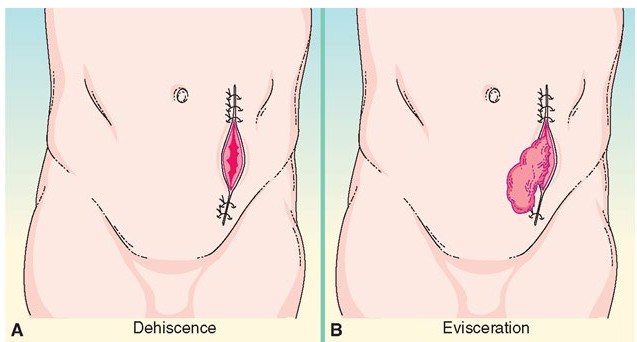A nurse is caring for a patient who has a surgical wound. Which of the following factors places the patient at risk for dehiscence? Select all that apply.
Poor nutritional status
Medication administration
Obesity
Nonadherence
Increased metabolic rate
The Correct Answer is A
Choice A reason: Poor nutritional status can impair wound healing and increase the risk of wound dehiscence.
Choice B reason: Medication administration is too vague to determine a risk for dehiscence without specifying the type of medication.
Choice C reason: Obesity can increase the risk of dehiscence due to the strain on the wound from excess tissue.
Choice D reason: Nonadherence could contribute to dehiscence if it refers to not following postoperative care instructions, but it is not specific enough in this context.
Choice E reason: An increased metabolic rate can lead to higher demands on the body's healing process, potentially affecting wound integrity.

Nursing Test Bank
Naxlex Comprehensive Predictor Exams
Related Questions
Correct Answer is A
Explanation
Choice A reason: Metabolic alkalosis is indicated by a high pH and a high HCO3 level. In this case, the pH is 7.5, which is above the normal range of 7.35-7.45, and the HCO3 is 32 mEq/L, which is above the normal range of 22-26 mEq/L.
Choice B reason: Respiratory acidosis is characterized by a high CO2 level and a low pH, which is not the case here as the CO2 is normal and the pH is high.
Choice C reason: Respiratory alkalosis typically presents with a low CO2 level and a high pH. Since the CO2 is normal, this condition does not fit the patient's ABG results.
Choice D reason: Metabolic acidosis would present with a low pH and a low HCO3 level. Given that both the pH and HCO3 are high, metabolic acidosis is not the correct diagnosis.
Correct Answer is B
Explanation
Choice A reason: Administering sodium bicarbonate is not indicated for respiratory alkalosis as it is an alkalinizing agent and could worsen the condition.
Choice B reason: Breathing into a paper bag can help to rebreathe CO2, which can help correct the pH in cases of hyperventilation-induced respiratory alkalosis.
Choice C reason: Having the patient's head between their knees is not a standard intervention for respiratory alkalosis and could be uncomfortable or unsafe for the patient.
Choice D reason: Acetazolamide is a diuretic that can cause metabolic acidosis to compensate for respiratory alkalosis, but it is not typically used for acute management of hyperventilation.
Whether you are a student looking to ace your exams or a practicing nurse seeking to enhance your expertise , our nursing education contents will empower you with the confidence and competence to make a difference in the lives of patients and become a respected leader in the healthcare field.
Visit Naxlex, invest in your future and unlock endless possibilities with our unparalleled nursing education contents today
Report Wrong Answer on the Current Question
Do you disagree with the answer? If yes, what is your expected answer? Explain.
Kindly be descriptive with the issue you are facing.
